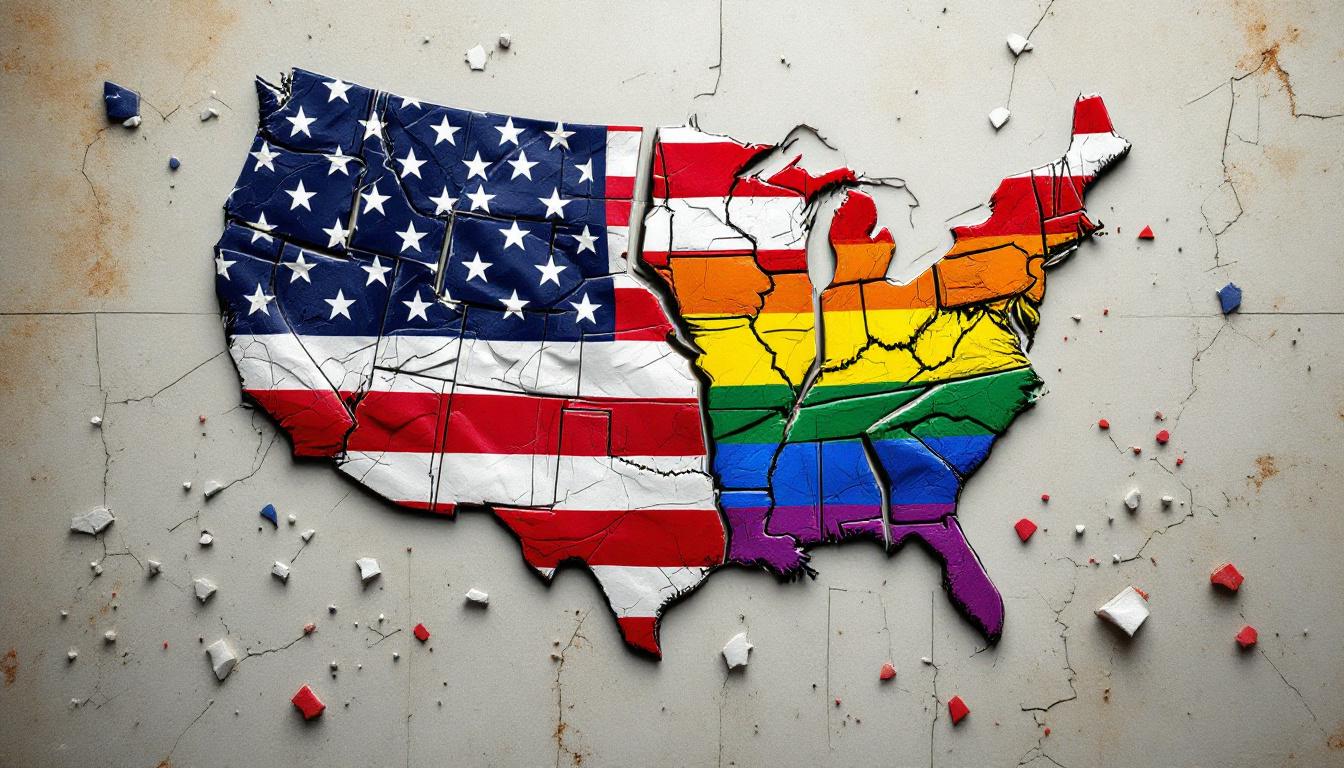More than half of the United States could see marriage equality abruptly disappear if the Supreme Court overturns its landmark 2015 decision in Obergefell v. Hodges, which established same-sex marriage as a constitutional right nationwide. According to data from the Movement Advancement Project (MAP), 31 states continue to have laws or constitutional amendments on the books explicitly banning marriage between same-sex couples. These bans have been unenforceable since Obergefell but would immediately become active again if the ruling were reversed, potentially stripping over 60% of Americans of marriage equality at the state level.
Obergefell v. Hodges, decided in a narrow 5-4 ruling, was a watershed moment in LGBTQ+ rights history, with the Supreme Court’s majority opinion linking the fundamental right to marry with individual liberty and equality under the Fourteenth Amendment. Justice Anthony Kennedy’s opinion emphasised that the freedom to marry is essential to personal dignity and autonomy, paving the way for nationwide recognition of same-sex marriage. However, the political and legal landscape remains fragile. In recent years, a wave of legislative efforts and court signals suggest ongoing challenges to this ruling.
While states could reinstate marriage bans, the federal landscape offers some continued protection. The Respect for Marriage Act, signed into law in 2022 during the Biden administration, mandates federal recognition of same-sex marriages and requires states to accept marriages performed elsewhere. Yet the Act stops short of compelling states to issue marriage licenses to same-sex couples within their own borders, leaving potential disparities in access and rights intact if Obergefell is overturned.
The 31 states retaining bans include a mix of constitutional amendments and statutory bans predating Obergefell. For example, Alabama’s Amendment 774 (passed in 2006), Florida’s Amendment 2 (2008), Texas’s Proposition 2 (2005), and Oregon’s Measure 36 (2004) are constitutional safeguards against same-sex marriage that would require referendum votes to repeal. Meanwhile, states such as Indiana, Pennsylvania, West Virginia, and Wyoming rely on older laws to uphold these bans. Iowa stands out as a sole exception; its state Supreme Court struck down the prohibition, meaning reversal would require that court to revisit its decision.
Recent political activity underscores the persistent threat to marriage equality. At least nine states, including Michigan, Idaho, Montana, North Dakota, and South Dakota, have introduced nonbinding resolutions urging the U.S. Supreme Court to reconsider Obergefell. In North Dakota, for instance, a Republican-led House resolution aiming to overturn the decision awaits Senate approval, reflecting ongoing partisan efforts to challenge marriage equality. Some states, like Missouri, Oklahoma, Tennessee, and Texas, have even proposed legislation creating alternative “covenant marriage” categories aimed at restricting marriage to opposite-sex couples. These legislative moves reveal a broader strategy to chip away at the ruling through state-level action while encouraging judicial reconsideration.
Justice Clarence Thomas, in a concurring opinion following the 2022 overturning of Roe v. Wade, explicitly suggested the Court should also revisit landmark decisions on contraception, sodomy, and Obergefell itself, labeling these rulings “demonstrably erroneous.” This legal argument has both emboldened anti-equality activists and alarmed LGBTQ+ advocates, who warn that reversing Obergefell would consign marriage rights back to a fragmented and unequal patchwork of state laws.
If Obergefell were overturned, many same-sex couples would face the precarious necessity of marrying in more permissive states and relying solely on federal recognition when returning home. Such a scenario would revive the inequalities activists fought to dismantle over the past decade. The country would once again grapple with a fractured legal terrain where marriage rights depend heavily on geography—a deeply unsettling prospect for millions of LGBTQ+ Americans and their families. Source: Noah Wire Services
